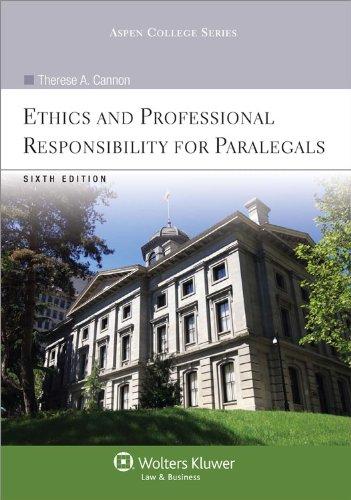Defendant petitioner is a registered escrow agent under the Escrow Agent Registration Act . . . and
Question:
Defendant petitioner is a registered escrow agent under the Escrow Agent Registration Act . . . and employs licensed escrow officers for closing real estate transactions. Petitioner closed several real estate transactions and in the process prepared documents and performed other services. Two of these transactions involved earnest money agreements specifying that the place of closing was to be the office of the plaintiff respondent, a law firm. Respondent brought suit alleging that the escrow company had engaged in the unauthorized practice of law. . . . Respondent sought a permanent injunction enjoining petitioner from performing any acts constituting the practice of law.
Subsequent to the filing of the action, the legislature enacted RCW 19.62 authorizing certain lay persons to perform tasks relating to real estate transactions. Specifically, the act allows escrow agents and officer to select, prepare, and complete documents and instruments relating to such loan, forbearance, or extension of credit, sale, or other transfer of real or personal property, limited to deeds, promissory notes, deeds of trusts, mortgages, security agreements, assignments, releases, satisfactions, reconveyances, contracts for sale or purchase of real or personal property, and bills of sale. . . .
RCW 19.62.010(2).
Petitioner, in reliance upon the statute, moved to dismiss the action for injunctive relief, which motion was denied by the trial court.
Respondent moved for, and the trial court granted, a partial summary judgment declaring RCW 19.62 unconstitutional.
The line between those activities included within the definition of the practice of law and those that are not is oftentimes difficult to define.
Recently, in Washington State Bar Ass’n v. Great W. Union Fed. Sav. &
Loan Ass’n, 91 Wash. 2d 48, 586 P.2d 870 (1978), we concluded that preparation of legal instruments and contracts that create legal rights is the practice of law. . . .
The statute in question is a direct response to our holding. We reaffirm that definition. RCW 19.62 authorizes a lay person involved with real estate transactions to ‘‘select, prepare, and complete documents and instruments’’ that affect legal rights. As such......
Questions about the Case 1. In your jurisdiction, who handles escrows and real estate closings on residential property—lawyers or licensed agents or brokers? What is the impact on consumers of having only lawyers perform this function?
2. If nonlawyers handle these functions, how are they regulated?
3. Do you think the functions that agents were licensed to perform under the Washington statute are rightfully classified by the court as the practice of law?
4. What is the basis of the court’s authority for striking down the statute?
5. Are you convinced by the court’s reasoning that it should have exclusive authority over the practice of law?
6. How should proponents of measures that affect the practice of law proceed to avoid having their rules or statutes held unconstitutional?
7. Do you think it is best for the court to have sole authority over the practice of law? Why, or why not? What role, if any, should be played by the legislative and executive branches?
Step by Step Answer:

Ethics And Professional Responsibility For Paralegals
ISBN: 272860
6th Edition
Authors: Therese A. Cannon





